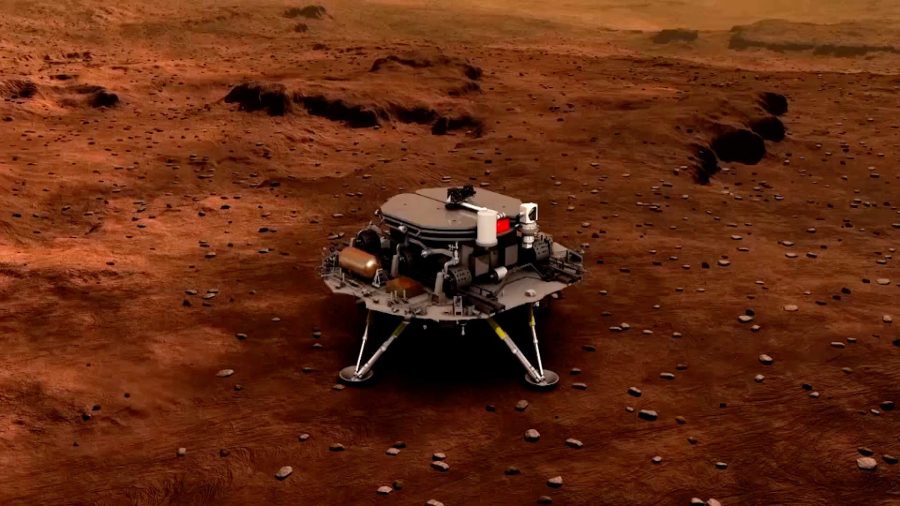BEIJING – China Saturday made history after its unmanned spacecraft ‘Tianwen-1’ successfully touched down the surface of Mars, making it the second nation after the United States to land on the Red Planet.
According to the China National Space Administration (CNSA), it landed on a pre-selected landing zone known as Utopia Planitia at 7:18 am.
The probe started descending from its parking orbit at about 1 a.m. and maneuvered to the entry orbit. The landing module, consisting of the lander and the rover Zhurong, separated from the orbiter at about 4 a.m., state-runt CGTN cited CNSA as saying.
After about a three-hour descent, the vehicle entered the Martian atmosphere, the most challenging moment for landing on the Red Planet.
The whole landing process can be divided into three steps, namely entry, descent, and landing.
The module first decelerated with the friction of the Martian atmosphere, a process in which it overcame high temperatures and attitude deviations, said Wang Chuang, chief director-designer of the Tianwen-1 probe with the China Academy of Space Technology.
The descent speed decreased by about 90 percent after the aerodynamic deceleration.
Then, the parachute was unfurled to continue reducing the velocity to 100 meters per second before the reverse thrust engine ignited to decelerate the speed, Wang explained.
At about 100 meters above the surface of Mars, the module entered the hovering stage and later it touched the Martian surface under the protection of a buffer mechanism.
During the nine minutes of the process, the rover had to slow down from a velocity of about 20,000 kilometers per hour to zero, said Wang.
About 30 minutes after separation, the orbiter returned to the parking orbit to provide relay communications for the landing module, the CGTN reported.
The rover, named after the Chinese god of fire Zhurong, will take images of the landing site and then depart from the landing area for further expedition.
Thomas Zurbuchen, NASA’s associate administrator for the Science Mission Directorate, has congratulated China over a successful landing on Mars. “Congratulations to CNSA’s #Tianwen1 team for the successful landing of China’s first Mars exploration rover, #Zhurong!” he tweeted.
He added, “Together with the global science community, I look forward to the important contributions this mission will make to humanity’s understanding of the Red Planet.”
China’s first Mars exploration mission, the Tianwen-1 probe has functioned normally since its successful launch on July 23rd, 2020.
On February 10th, 2021, the Tianwen-1 probe entered the Martian orbit for scientific exploration and the huge amount of scientific data are available up to date.
The United States had previously successfully landed and operated a spacecraft on Mars – nine times, with the most recent landing of Perseverance rover in February.










